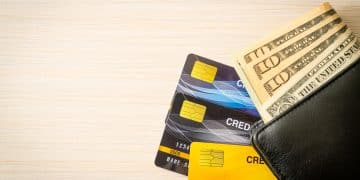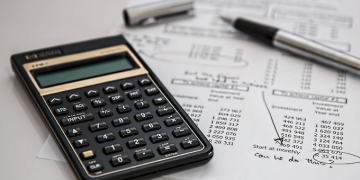Understanding Sukuk: The Islamic Bonds Reshaping Global Investment Strategies
20What Are Sukuk and Why Do They Matter?
Sukuk—often referred to as Islamic bonds—are financial instruments that provide capital-raising opportunities while adhering to Sharia principles, which prohibit interest (riba). Rather than representing a debt obligation like traditional bonds, Sukuk grant partial ownership of tangible assets that generate future income. This asset-based structure appeals to global investors seeking both diversification and ethical finance alternatives.
Historical Roots of Islamic Finance
Islamic finance dates back to the 7th century, grounded in the principles of fairness, transparency, and social responsibility. Over recent decades, it has seen exponential growth, driven by demand for Sharia-compliant financial products. Among these, Sukuk have emerged as a popular alternative to conventional fixed-income securities, providing access to values-based investing and emerging markets.
Why Sukuk Stand Out in Today’s Financial Landscape
In an era where investors increasingly seek sustainable, ethical, and socially responsible options, Sukuk offer a distinct advantage. They provide a secure and diversified investment route while aligning with Islamic ethics. With rising interest in green infrastructure and ESG-focused projects, Sukuk are gaining traction among conscious investors looking to make a positive impact alongside financial returns.
How Sukuk Work: Structure and Principles
Asset-Backed Structure and Income Generation 
Unlike traditional bonds, Sukuk do not represent a promise to pay interest. Instead, they confer ownership in an asset or project, allowing investors to share in the profits generated. For example, a Sukuk might be tied to a piece of real estate, where rental income is distributed among investors. This profit-sharing model ensures compliance with Islamic law while offering consistent returns.
Core Sharia Principles in Sukuk Issuance
Sukuk must comply with key Sharia guidelines, such as:
- Prohibition of Riba (interest): Income must come from profit or rent, not fixed interest payments.
- Asset-backed transactions: Investments must involve tangible or productive assets.
- Ethical project focus: Funds cannot support prohibited (haram) industries like gambling or alcohol.
Common Types of Sukuk Structures
There are several Sukuk models, each designed to meet specific financing needs:
- Ijara (Leasing Sukuk): Investors acquire assets that are leased, and the rental income is shared.
- Mudarabah (Partnership Sukuk): Investors provide capital to an entrepreneur or project manager, sharing profits according to pre-agreed terms.
- Murabaha (Cost-plus Sale Sukuk): Assets are purchased and resold at a markup, with profits distributed to investors.
Each model provides a Sharia-compliant, risk-sharing approach that makes Sukuk a unique and appealing investment vehicle.
Comparing Sukuk and Traditional Bonds
Key Differences Between Sukuk and Conventional Bonds
The fundamental distinction is in ownership vs. debt:
- Traditional bonds: Represent a loan to the issuer with fixed interest payments.
- Sukuk: Represent ownership in an underlying asset, where returns are derived from asset performance.
Additionally, while traditional bonds may involve speculative elements, Sukuk tie investments to the real economy, emphasizing transparency, asset validation, and ethical use of funds.
Why Investors Choose Sukuk
- Ethical alignment: Ideal for investors who prioritize religious or moral investment principles.
- Diversification: Exposure to different asset classes, including real estate, infrastructure, and renewable energy.
- Transparency: Asset and cash flow details are clearly outlined in issuance documents.
- Sustainability: Many Sukuk support green and social impact projects.
Islamic Legal Framework: A Unique Layer of Governance
Sukuk adhere to Sharia rulings that reinforce:
- Profit-sharing over interest payments
- Real asset linkage, not speculation
- Risk and reward distribution among all parties
This framework promotes community-focused investing and reduces exposure to purely speculative financial activity.
Investment Potential and Strategic Benefits
Portfolio Diversification with Tangible Assets
Sukuk allow investors to diversify their portfolios with real assets that generate returns. Unlike traditional fixed-income securities, they reduce speculative risk while offering a secure income stream. Sharia compliance also ensures that investments steer clear of unethical practices, appealing to both religious and ESG-focused investors.
Access to Emerging Islamic Markets
By investing in Sukuk, investors gain entry into high-growth regions such as the Middle East, Southeast Asia, and North Africa, where Islamic finance is rapidly expanding. These markets present new opportunities in sectors like real estate, infrastructure, and clean energy, often underrepresented in global portfolios.
Focus on Ethical and Sustainable Development
Many Sukuk are issued to finance projects with strong social or environmental impact, such as:
- Renewable energy developments
- Affordable housing
- Water and sanitation infrastructure
This makes them a compelling choice for those seeking purpose-driven returns.
Risks and Investor Considerations
Common Risks Associated with Sukuk
Like any investment, Sukuk carry risks, including:
- Market risk: Fluctuations in asset values can affect returns.
- Credit risk: The issuer’s ability to fulfill obligations is critical.
- Regulatory uncertainty: Especially in regions with evolving Islamic finance frameworks.
Legal and Tax Considerations for International Investors
Foreign investors must be aware of:
- Local laws regarding Sharia-compliant investing
- Tax implications that may differ from those of conventional bonds
- Cross-border compliance requirements
Consulting with legal and tax professionals experienced in Islamic finance is highly recommended.
The Importance of Due Diligence
Thorough research is essential before investing in Sukuk. This includes:
- Reviewing the prospectus and understanding asset ownership details
- Assessing the financial strength and reputation of the issuer
- Analyzing the geopolitical landscape of the issuing country
Proper due diligence helps mitigate risks and ensures the investment aligns with the investor’s goals.
How to Start Investing in Sukuk
Step-by-Step Guide for Beginners
- Educate Yourself: Learn the fundamentals of Sukuk and their Sharia-compliant structures.
- Define Investment Goals: Determine whether your focus is ethical returns, diversification, or exposure to new markets.
- Build a Strategy: Integrate Sukuk alongside other asset classes in a diversified portfolio.
- Seek Expert Advice: Engage with Islamic finance specialists or financial advisors familiar with Sukuk.
Platforms and Brokers That Offer Sukuk
You can invest in Sukuk through:
- Islamic banks that offer certified Sharia-compliant investment products.
- Brokerage firms that specialize in Sukuk trading or ETFs tracking Sukuk indices.
- Online platforms like Bloomberg or Nasdaq, which list active Sukuk offerings and analytics.
Documentation and Requirements
Investing in Sukuk typically involves:
- ID and proof of address
- Regulatory compliance with both local laws and Islamic financial standards
- Review of offering documents to ensure ethical alignment and profitability
The Rise of Green Sukuk
What Are Green Sukuk?
Green Sukuk are Islamic bonds issued specifically to finance environmentally sustainable projects. These include:
- Solar and wind farms
- Eco-friendly transportation systems
- Water conservation and waste management infrastructure
This growing sector bridges Islamic finance with the global ESG movement.
Why Green Sukuk Make Sense
The alignment between Islamic ethics and environmental responsibility makes Green Sukuk a natural fit. Sharia prohibits investments in harmful industries and encourages stewardship of the Earth, reinforcing the values of social justice and sustainability.
Opportunities for Sustainable Impact
By investing in Green Sukuk, individuals and institutions contribute to:
- Reducing global carbon emissions
- Promoting clean technology
- Supporting the UN’s Sustainable Development Goals (SDGs)
Conclusion: Sukuk as a Modern Ethical Investment Tool
Sukuk offer a compelling alternative to conventional bonds through their ethical framework, real asset backing, and appeal to both faith-based and sustainability-focused investors. With a growing range of structures—Ijara, Murabaha, Mudarabah—they allow for flexible and culturally aligned investment.
Future Outlook
As ethical investing gains momentum globally, the Sukuk market is poised for further expansion, especially in sectors like:
- Green finance
- Infrastructure development
- Emerging markets growth
Sukuk are more than just an Islamic financial product—they’re a blueprint for a more inclusive, responsible, and diversified future in investing.
To read more content on the subject see here





